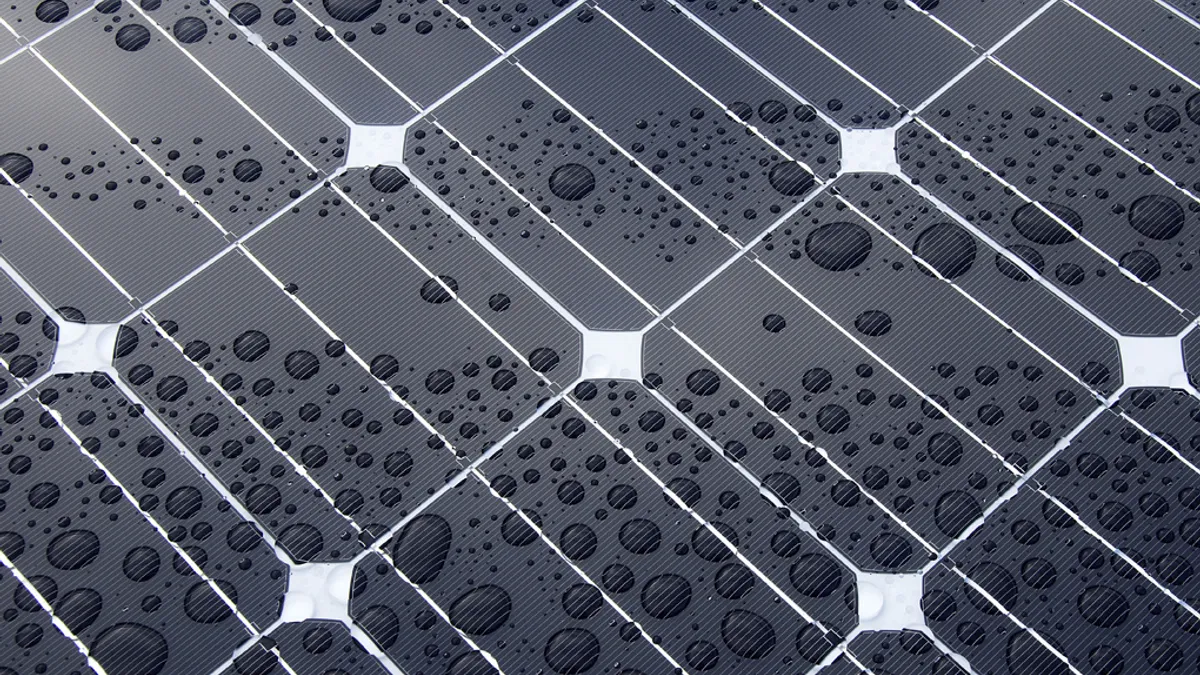Dive Brief:
-
The United States has notified the World Trade Organization that it is considering imposing emergency tariffs on imported solar cells.
-
The tariffs would apply only to crystalline silicon photovoltaic cells, whether or not they are partially or fully assembled into other products, and would apply to imports from any country.
- The U.S. International Trade Commission will make a determination on the safeguard investigation, initiated on behalf of U.S. solar panel manufacturer Suniva, by Sept. 22. If it decides to impose tariffs, the ITC will deliver its proposal to the president by Nov. 13.
Dive Insight:
Shortly after filing for bankruptcy in April, Suniva filed a request with the U.S. International Trade Commission seeking relief from foreign manufactured crystalline silicon photovoltaic cells and modules.
The ITC picks up those arguments in its notice of a safeguard investigation, filed with the WTO last week.
In the petition, Suniva officials wrote that increasing imports have taken market share from domestic producers and have led to bankruptcies, plant shutdowns, layoffs, and a severe deterioration of the financial performance of the domestic industry.
The petition argues that 1,200 U.S. manufacturing jobs have been lost and wages have fallen by 27% between 2012 and 2016. In the same period, the petition says domestic market share has fallen from 21% in 2012 to 11% in 2016, despite a $4 billion growth of the U.S. market over the same period.
Suniva cites this data as evidence of the threat of serious injury to the domestic solar industry, arguing it warrents protection through tariffs.
Another solar panel manufacturer, SolarWorld, which has a factory in Oregon, has also joined Suniva in asking the U.S. government to investigate solar panel imports.
If Suniva, which 64% of it is owned by Shunfeng of China, is successful in its efforts, a tariff could help U.S. solar panel manufacturers. But analysts say that would come at the expense of the wider industry.
Tariffs on imported panels would raise panel prices, which could slow domestic installations. That would be bad news for developers, installers and others in the broader solar power industry.
In May, when Suniva made its filing with the ITC, the executive director of the Solar Energy Industries Association said the request has “the potential for a harmful effect on many segments of the market,” affecting the livelihoods of hundreds of thousands of American workers.
“There is no job worth saving that is worth putting the other 250,000 at risk,” SEIA's Abigail Ross Hopper reiterated this week.














